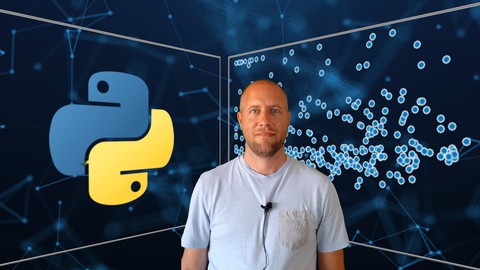Machine Learning & Data Science Introduction Course


Price: 34.99$
Why choose this course ?Other courses are either too theoretical or too superficial in explaining how things work. This course was created to strike a balance between the practical and the theory. In real-life you’ll need to be able build models and troubleshoot them when they don’t work. You don’t need to be a mathematician to use ML, but you need to have an intuition about how and why something works. This course gives you just that. Hiring companies look for professionals who can problem solve and think in a particular way, without only relying on a specific technology stack. Because technology always changes! This course helps you to develop a data scientist mindset. How will this help my career ?In this course we go into many of the core technologies that are used in the tech industry (eg. Spotify, Amazon, Google, Netflix, Zalando, Tencent )As you build different models during the course, you’ll be adding to your portfolio and to your confidence as a data scientist and ML practitioner. People who master Machine Learning are in high demand in the job market, as there is a lack of qualified professionals. Machine Learning is the future! Now is the time to get on board and benefit from an interesting career and well paid job. Start learning today! What will I learn in this course ?Machine Learning Algorithms Exploratory Data Analysis Use Python with Jupyter Data science libraries: numpy, scipy, pandas Data Visualisation with Matplotlib, Seaborn Feature Engineering Regression Clustering Classification PCA (Principal Component Analysis)k-fold validation & train/test splits Model fit & evaluation SVR (Support Vector Regressors)SVM (Support Vector Machines)K-Nearest Neighbour Gaussian Mixture Models Agglomerative Clustering DBSCANPipelines One-hot encoding, target encoding, binary encoding Business use Machine Learning models Random Forest Decision Trees K-means Bias/Variance Tradeoff This course includes12 hours of video content17 downloadable resources17 practical assignments in jupyter notebooks Reference Materials & further reading







importing a car into uk
Your website seems to be actually very good. Currently being a weblog writer myself, I really appreciate the time you took in crafting this write-up.